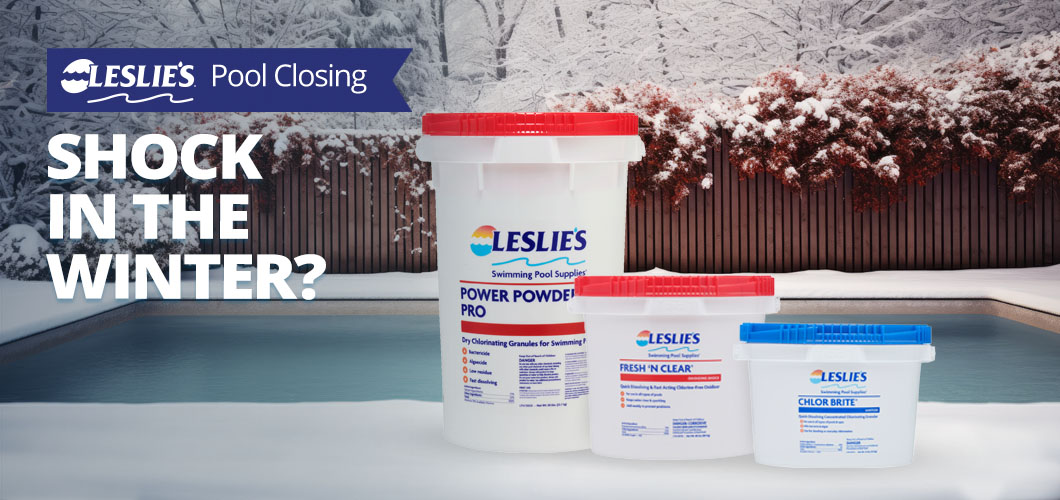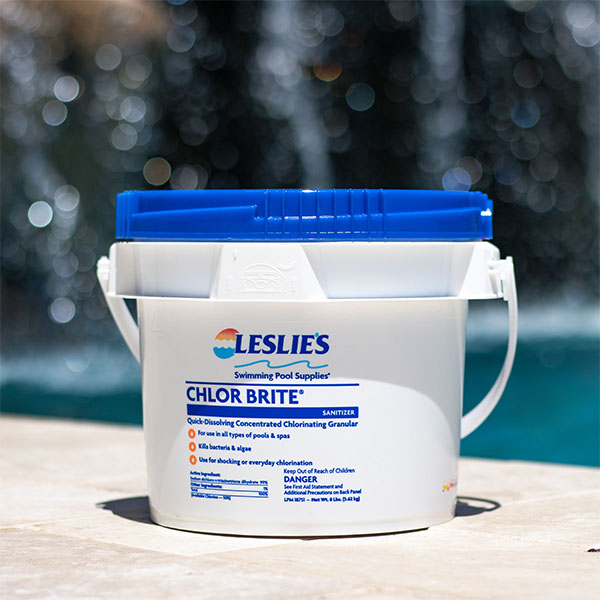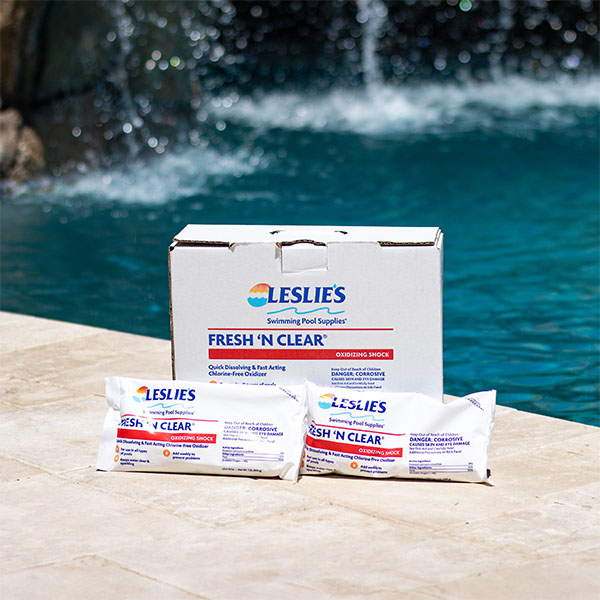
Shock in the Winter?
To shock, or not to shock the pool during the winter months? That is the question...The debate is still ongoing among pool professionals. Shocking the pool during the winter months can certainly help avoid a green swamp-like pool in the spring. It's often recommended that you at least maintain a minimum level of Free Available Chlorine at all times. However, poor water balance, improper application, and over-chlorination of a winterized pool can lead to unintended consequences, such as discoloration and damage to pool surfaces.
Whether you decide to use pool shock or not, it's still important to test and monitor the water chemistry of a covered, winterized pool during the off-season. Do this at least once or twice a month when the water in your pool is not frozen. Cooler water will require less frequent testing, while warmer water may need to be tested more often.
Winter Pool Shock Tips

If your pool has a solid winter or safety pool cover, there will be less maintenance required. This is because sunlight and debris are blocked from entering the pool. Debris can quickly eat up your existing chlorine residual, and sunlight fuels algae growth (which will also deplete chlorine levels). However, if you have a mesh cover, then sunlight will certainly pass through, along with snow melt, rainwater, and some of the finer dirt, debris, leaf particles, and other things that land on your pool cover. These are things that can contribute to green water if sanitizer levels are absent or inadequate.
When to Shock the Pool in Winter
In our opinion, it's as the saying goes — it's better to be proactive than reactive. Check sanitizer levels (Free Available Chlorine) whenever you test the water. Also visually inspect the pool to make sure the water isn't changing color. If sanitizer levels are above 1 ppm, and the water looks normal, you may not need to worry about adding chlorine to the pool. However, if there's little or no Free Available Chlorine remaining, and/or the water is taking on a cloudy haze or a green hue, add a dose of chlorine can help keep the algae under control until it's time to open the pool.
IMPORTANT: If your pool is fully winterized, we do not recommend superchlorinating the pool! Only add enough chlorine to keep sanitizer levels within the recommended ideal range, which is 2–4 ppm. If you have any questions about maintaining your pool in the winter, please collect a water sample and bring it to your local Leslie's for a free AccuBlue® water test and water treatment plan. Let the associate know that your pool is winterized, and they'll help address any concerns you may have.
Precautions When Adding Chemicals to a Winterized Pool

When adding any type of chemical during the winter months, it's important to make sure the water is well circulated. This can be tricky without the help of pool equipment.
Start by pulling the cover back to expose at least half of the pool. If product label instructions indicate that you can pre-dissolve your pool shock, do this before adding it to the pool water. Otherwise, it's best to use liquid chlorine or fast-dissolving chlorine granules, such as Leslie's Chlor Brite. Once added to the pool according to product label instructions, vigorously brush the pool to agitate the water. Alternatively, you can also use a submersible pump and a length of hose to get the water moving from one end of the pool to the other. This step will distribute the shock more evenly throughout the pool, and it will prevent concentrated chlorine from damaging pool surfaces.
For this reason, non-chlorine pool shock is a popular option in the winter. However, chlorine-free shock isn't as effective against algae outbreaks, and it should only be used if Free Available Chlorine levels are at least 2 ppm. Non-chlorine shock won't increase your Free Available Chlorine levels, but it will help keep your existing chlorine working as efficiently as possible for as long as possible.
Conclusion
The final verdict? An extra bit of prevention in the winter can make it much easier to open your pool when the weather warms up again, but you need to do it properly to avoid accidental pool damage.
If you ever run into water chemistry issues during the off-season, bring a water sample to your local Leslie's for a free AccuBlue® water test. Or if you have any questions about maintaining or shocking your pool in the winter, just let us know! Our friendly pool experts are always here to help.